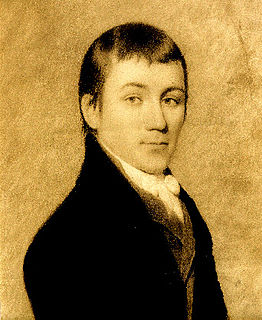A Quote by Edward Gibbon
The ascent to greatness, however steep and dangerous, may entertain an active spirit with the consciousness and exercise of its own power: but the possession of a throne could never yet afford a lasting satisfaction to an ambitious mind.
Related Quotes
The genius of Christian spirituality is to integrate [the] spirit of possession with the spirit of dispossession. The spirit of dispossession implies that all the good and delightful things of this world are never allowed to own, possess, or shackle me. Dispossession implies that I am always free, my own person, liberated from the tyranny that possession can easily exercise over us.
All political power, all power as such, is stupid. Don't rush after it, don't be ambitious, because all ambition collects dust and only dust. If you are not disillusioned by dust, you will not be able to know what truth is. A man obsessed with ambition is not capable of knowing truth at all. Eyes full of ambition never see what is; they only see what they want to see. The ambitious mind is the wrong mind; the non-ambitious mind is the right mind.
For the powers of our mind, life, and body are bound to their own limitations, and however high they may rise or however widely expand, they cannot rise beyond them. But still, mental man can open to what is beyond him and call down a Supramental Light, Truth, and Power to work in him and do what the mind cannot do. If mind cannot by effort become what is beyond mind, Supermind can descend and transform mind into its own substance.
A man who has once perceived, however temporarily and however briefly, what makes greatness of soul, can no longer be happy if he allows himself to be petty, self-seeking, troubled by trivial misfortunes, dreading what fate may have in store for him. The man capable of greatness of soul will open wide the windows of his mind, letting the winds blow freely upon it from every portion of the universe.
Never may an act of possession be exercised upon a free being; the exclusive possession of a woman is no less unjust than the possession of slaves; all men are born free, all have equal rights: never should we lose sight of those principles; according to which never may there be granted to one sex the legitimate right to lay monopolizing hands upon the other, and never may one of the sexes, or classes, arbitrarily possess the other.
No one knows how greatness comes to a man. It may lie in his blackness, sleeping, or it may lance into him like those driven fiery particles from outer space. These things, however, are known about greatness: need gives it life and puts it in action; it never comes without pain; it leaves a man changed, chastened, and exalted at the same time--he can never return to simplicity.
This is practically the language used to fallen women, and chiefly by their own sex: "God may forgive you, but we never can!" - a declaration which, however common, in spirit if not in substance, is, when one comes to analyse it, unparalleled in its arrogance of blasphemy. That for a single offence, however grave, a whole life should be blasted, is a doctrine repugnant even to Nature's own dealings in the visible world.
Motive is also important in our quest for knowledge and in the questioning that accompanies it. In commenting on our duty to educate for eternity, Eugene England writes: Teaching or learning - with the Spirit of God simply means (though it is not simple) that we are doing so with an eye single to eternal, not worldly, values, with an eye single to lasting development of the mind and spirit and to useful service to others, especially to aid in their lasting development of mind and spirit.
The inner throne of man is both what the kingdom of Christ and the kingdom of Lucifer are after. And when this throne is yielded to the Almighty God, a man enters upon the sacred path of greatness right then and there...The destiny of a human soul depends entirely on who sits upon the throne of that soul...when the flesh is removed from its position of power, the human soul is made ready to usher in the glory of its true and rightful King
I have never been able to conceive how any rational being could propose happiness to himself from the exercise of power over others... An honest man can feel no pleasure in the exercise of power over his fellow citizens.... Power is not alluring to pure minds and is not with them the primary principle of contest.







































